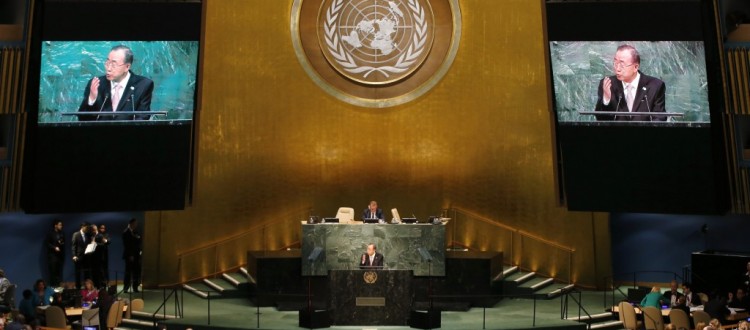UNHCR background guide for Country Delegates
United Nations High Commissioner for Refugees (UNHCR) background guide(download here) is ready and we invite all Country Delegates attending the Rotaract MUN @ Change the World New York to use it in their preparation for debates and proposed topics:
I. Threats to International Peace and Security Caused by Terrorist Acts
The United Nations (UN) is tasked with addressing challenges on a global scale, and one particular challenge includes its role in acting as a peacekeeping body. The UN works to maintain international peace and security in a world where security threats have become more complex. Globally, terrorism has consistently impacted peace and security. Whether this refers to the Charlie Hebdo attacks in France, the suicide bombings perpetrated by Boko Haram militants in Nigeria, countless individuals fall victim to the grave terrorist attacks each year. Transnational threats create roots for the development of both regional and global tensions. International terrorism poses a very significant threat to peace and security worldwide. On September 14, 2014 all fifteen UN Security Council member states passed a resolution that prevents suspected foreign terrorist fighters (FTFs) from traveling to member states and creates legislation to prosecute FTFs. The resolution defines foreign terrorist fighters as “individuals who travel to a State other than their States of residence or nationality for the purpose of the perpetration, planning, or preparation of, or participation in, terrorist acts or the providing or receiving of terrorist training, including in connection with armed conflict.” Transnational threats create roots for the development of regional and global tensions by undermining the authority of states, spread corruption, and weaken economic development.
 II. The Impact of Social Media on Democracy
II. The Impact of Social Media on Democracy
The explosive growth of social media in the 21st century has made a significant impact worldwide. Social media constitutes a group of Internet-based applications that build on the ideological and technological foundations that allow the creation and exchange of user-generated content. Democracy, and democratic governance in particular, means that people’s human rights and fundamental freedoms are respected, promoted and fulfilled, allowing them to live with dignity in a government for the people, by the people. Although in theory this idea of democracy is desirable, this does not necessarily depict the reality in many countries throughout the world due to censorship from the government, violence, political imprisonment, among others. Although the United Nations Charter does not mention the word “democracy”, the opening words of the Charter, “We the Peoples”, reflect the fundamental principle of democracy, that the will of the people is the source of legitimacy of sovereign states and therefore of the United Nations as a whole.
III. Media Effects during Violent Conflict: Evaluating Media Contributions to Peace Building
Media can be defined as the main means of mass communication through various outlets such as television, radio, newspaper, and the Internet. The media plays a powerful role in situations regarding violence. History has shown that the media can incite people towards violence. International media sources such as the BBC, NPR, CNN, al-Arabiya, and al-Jazeera have the potential to influence governments and international organizations. These sources can have an agenda-setting effect on a global scale. This effect revolves around the ideological components of political disagreements, and more specifically the way key individuals in conflict seek to manipulate public perceptions of the disagreement. The media’s impact on peacebuilding must be significant given its powerful impact on conflict. Although media companies would suggest the importance of exposing the truth in their news as the most important mission, they are corporate-focused entities that must get citizens to watch and read their content. The media rests in a powerful position to manipulate what we see and hear about conflict.

